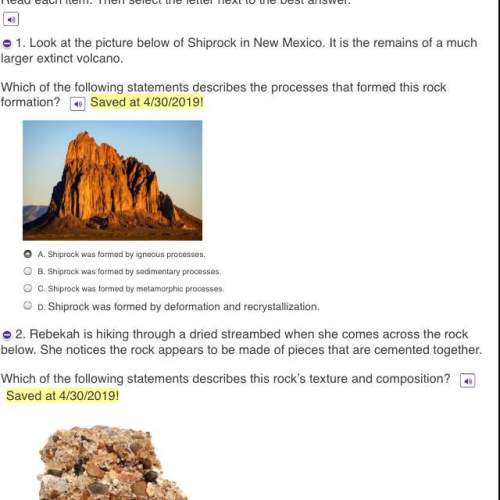
Biology, 25.07.2019 22:00 youguyscantbanme
Need 20 point and will mark do some research into thornless varieties of plants. a. what plants are available which do not have thorns? b. is thornlessness a mutation? c. when and where was the possibility of growing thornless varieties of plants discovered? d. how do these varieties compare with the variety that has thorns?

Answers: 1


Another question on Biology

Biology, 21.06.2019 22:00
Im is in a crowd of people at the mall looking for his girlfriend tammy, who was supposed to meet him for dinner. jim realizes tammy is across the room as he catches a whiff of her overpowering perfume, 'paris #6'. which process explains why jim is able to smell the perfume?
Answers: 2

Biology, 22.06.2019 15:00
What are the three groups of atoms that make up amino acids called
Answers: 1

Biology, 22.06.2019 15:40
What evidence could be used to convince policy makers to change a shipping lane from going through a whale breeding ground? information on the number of all whale species currently alive information on the number of all whales hit by boats in the given area information on the number of whale deaths in the world's oceans information on the number of whale offspring born every year. (a) scientists could collect and combine data on fish populations all around the world to show that their populations are declining. (b) scientists collect and combine data on fish populations all around the world to show that their populations are increasing. (c) scientists work together and use past data to show that fish populations are becoming locally extinct in some areas. (d) scientists work together and use past data to show that some fish populations are adapting to environmental changes.
Answers: 1

Biology, 22.06.2019 23:00
You are studying several alleles of an e. coli helicase gene. one allele, called rsr, confers resistance to rs2014, an antibiotic that works by inhibiting helicase activity. bacteria with the rss allele are sensitive to rs2014. another allele, called ts-, produces a temperature sensitive mutation of the helicase. in bacteria with the ts- allele, helicase is inactivated at 42 °c but functions normally at 37 °c. helicase functions normally at both temperatures in bacteria with the ts allele. you obtain the following data while testing four strains of e. coli at different temperatures and doses of rs2014. each number represents the percentage of maximal dna synthesis. based on this data, assign the appropriate genotype to strains a–d in the spaces provided
Answers: 1
You know the right answer?
Need 20 point and will mark do some research into thornless varieties of plants. a. what plants a...
Questions








Mathematics, 18.08.2021 04:50





History, 18.08.2021 04:50

English, 18.08.2021 04:50

Mathematics, 18.08.2021 04:50

History, 18.08.2021 04:50



Mathematics, 18.08.2021 04:50




